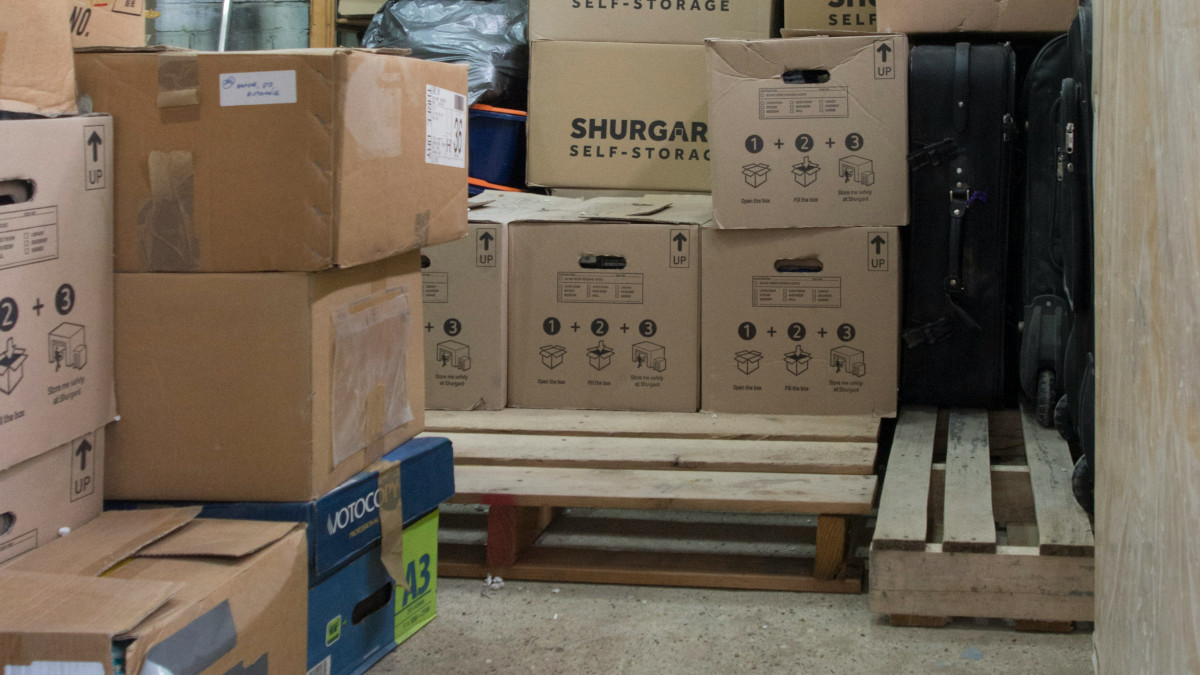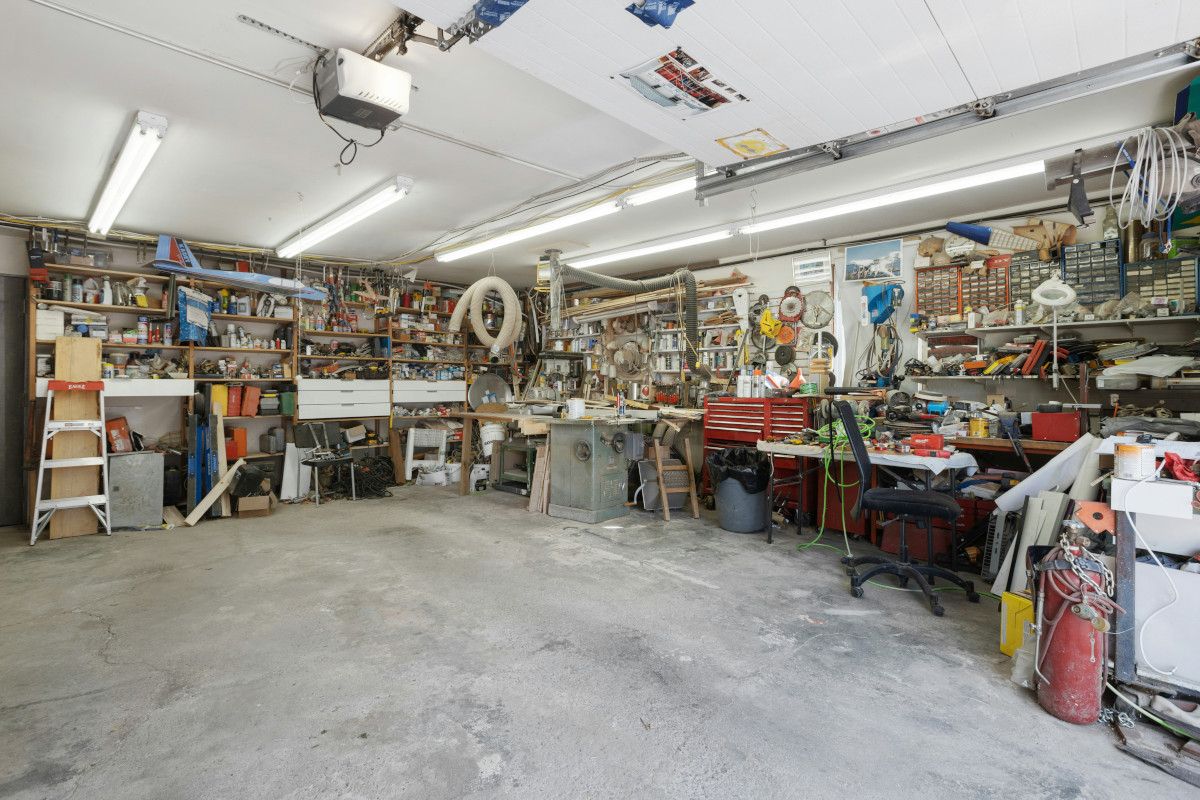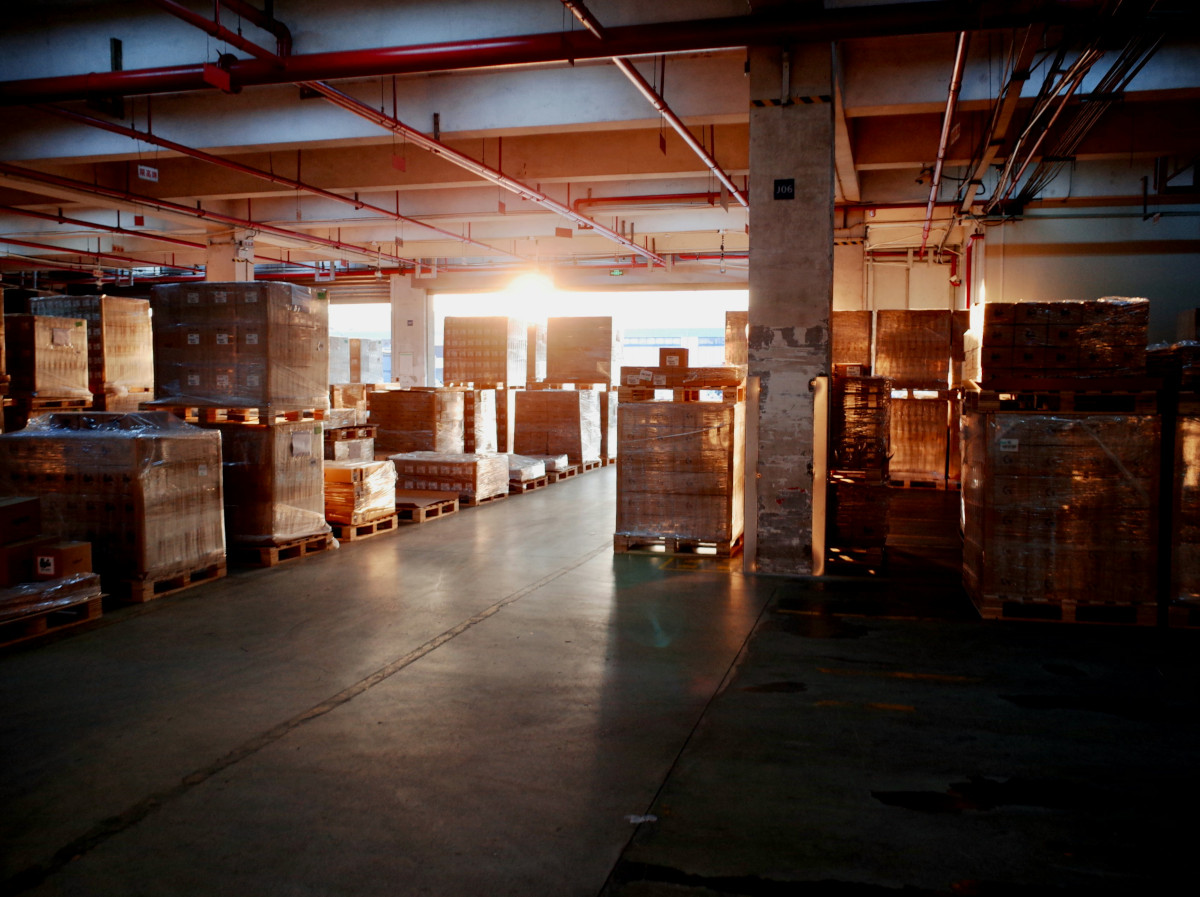Is Storage Unit Insurance Mandatory?

It can be really nerve-wracking to transfer your belongings to a storage unit, especially if you’re storing valuables or anything with sentimental value. Having insurance provides you with some peace of mind, but how much is storage unit insurance, and is storage unit insurance mandatory?
In this article, we’ll explore whether insurance for storage units is required by law, what factors determine the need for it, and the benefits of insuring your stored items, whether you’re storing family heirlooms, business inventory, or spare furniture. So, what kind of insurance do you need for a storage unit? Let’s find out!
When you book a WheeKeep unit for self storage, you don’t need to stress about insurance. You’ll pack your belongings yourself, into our climate-controlled, clean, safe storage units, which can either be secured at your location or our dedicated storage facility.
When you store your unit with us, we’ll transport it to our location, which is under 24/7 CCTV surveillance with on-site guards and a state-of-the-art alarm system. Only YOU have the key, and you can access your unit whenever you need to. Book your WheeKeep today for the safest storage in Saudi Arabia!
What is Storage Unit Insurance?
First of all, what is insurance for storage units? It’s a specialized form of coverage designed to protect the belongings you keep in a storage facility. Here’s a closer look at what this type of insurance entails and how it compares to other forms of coverage.
What Does Storage Unit Insurance Typically Cover?
While many people assume their homeowners or renters insurance extends to items stored offsite, this isn’t always the case – or the coverage may be limited. Specialized insurance for storage units fills that gap, ensuring your possessions are safeguarded.
The best storage unit insurance typically covers damage or loss caused by specific events, often referred to as “named perils.” These may include:
- Protection against theft, break-ins, or unauthorized access to your storage unit
- Fire or smoke damage, regardless of its origin
- Protection from weather-related damage caused by windstorms, hail, or lightning (though flooding may require additional coverage)
- Coverage for non-flood-related water damage caused by leaks or burst pipes within the facility
- Reimbursement for items destroyed or damaged intentionally by others (vandalism)
Policies vary, so it’s crucial to read the terms carefully to understand exclusions, such as damages from pests, mold, or improper storage.
How It Differs From Homeowners or Renters Insurance
While homeowners or renters insurance may offer some protection, many homeowners or renters policies only cover a portion of the value of items stored offsite, often capped at 10% of your policy’s personal property limit. For high-value items, this might be too low.
Also, some homeowners or renters policies exclude specific perils in storage facilities, such as water damage or theft. The best storage unit insurance policies are designed specifically for the risks associated with storage facilities, offering broader and more tailored coverage.
By securing storage unit insurance, you gain comprehensive protection that complements or replaces any gaps in your existing homeowners or renters policy, providing peace of mind for your stored possessions until you’re moving out of storage unit.
How Much is Storage Unit Insurance?
So, is storage unit insurance mandatory, and how much is storage unit insurance? Ultimately, it depends where you are. It’s not normally required, but if you’re storing valuable items, it can be great for peace of mind. Let’s take a look at the costs.
Coverage Amount
The coverage amount is a primary factor in determining the cost of storage unit insurance. If you’re insuring high-value items, such as electronics, jewelry, or antiques, you’ll need a policy with a higher coverage limit, which will increase the premium.
Conversely, if your stored items are of moderate value, a lower coverage amount will suffice, resulting in a more affordable policy. Think about what size storage unit do I need, and the value of your items, for a better idea of the type of coverage you’ll need.
Location of the Storage Facility
The location of the storage facility also impacts insurance costs. Facilities in areas prone to natural disasters, such as flooding or sandstorms, may have higher premiums due to increased risk.
Similarly, facilities in urban areas might charge more for theft-related coverage. Think about the types of issues you might run into based on your location, and learn how to keep insects out of storage unit or how to protect your goods from humidity in a storage unit based on your area.
In particularly hot regions, it’s essential to protect your belongings from the heat. That’s when you need a climate-controlled storage unit – especially if you’re storing heat-sensitive items or you’re opting for long-term storage.
How hot does a storage unit get? WheeKeep’s units are climate-controlled (and because you choose where it’s stored, you can choose a cooler, shaded location).
Type of Goods Stored
What can you store in a storage unit? Almost anything, but the type of goods you store can significantly influence the cost of insurance. High-risk or fragile items, such as fine art or delicate machinery, often require specialized coverage, which can be more expensive.
On the other hand, standard items like furniture or clothing are typically less costly to insure. Insurance providers may ask for an inventory list or value estimate of your belongings to determine the premium. For more tips on storing specific items for safe self-storage, check out these guides:
- How to store furniture in a storage unit
- How to store a mattress in a storage unit
- How to store books in a storage unit
- How to store clothes in a storage unit
- How to store a couch in a storage unit
- How to store washer and dryer in storage unit
So, How Much is Storage Unit Insurance on Average?
What kind of insurance do you need for a storage unit, and what does it cost? On average, storage unit insurance is affordable and typically ranges within a small percentage of the portable storage unit cost. Policies are often available in tiered packages, depending on your required coverage.
Is storage unit insurance mandatory? Not usually, but while exact pricing varies, most renters find the peace of mind offered by the best storage unit insurance worth the investment, especially for valuable or irreplaceable items.
Why Do You Need Insurance for Storage Unit?
Insurance for your storage unit provides a vital layer of protection, ensuring your items are secure even in the face of unexpected circumstances. But when do you need insurance for storage units, and when is it not worth the extra cost? Let’s take a look.
Protection Against Unexpected Events
While the best storage unit companies take security seriously, certain risks are beyond even their control. Natural disasters like floods, fires, or sandstorms can cause significant damage, as can theft or vandalism.
Storage unit insurance safeguards you against these unforeseen events, covering repair or replacement costs for your items. Without insurance, you’d have to bear these expenses yourself, which can be costly, depending on the value of your stored items.
Value of Stored Items
Whether you opt for portable self-storage vs traditional self-storage, the value of your stored items plays a big role in determining whether or not you should invest in insurance. Many people use storage units for valuable or sentimental items, such as heirlooms, electronics, or business inventory.
Even seemingly ordinary items, like furniture or clothing, can add up to a substantial value. Insurance ensures that the financial worth of these belongings is protected, providing peace of mind in case of loss or damage.
Compliance With Facility Requirements
Is storage unit insurance mandatory at specific facilities? Yes – some storage facilities require tenants to have insurance as part of their rental agreement. This is to ensure that both the tenant and the facility are protected against potential losses.
If you don’t already have coverage through a personal policy, the facility may offer an insurance option as an add-on to your rental package. By complying with this requirement, you not only meet the terms of your lease but also secure essential protection for your belongings.
Is Storage Unit Insurance Mandatory?
So, do you need insurance for storage units? While it is not universally required, it may be necessary. It depends on the policies of the storage facility, the terms of your rental agreement, and the local regulations in your area. If you’re not sure, check with the storage company or your regular insurance provider.
Why You Can Store Your Goods With Peace of Mind at WheeKeep
Is storage unit insurance mandatory with WheeKeep? No – when you rent a moving storage container from us, it’s up to you whether you choose to insure your possessions or not. You don’t necessarily need to, because WheeKeep goes to extraordinary lengths to protect your precious belongings while they’re in storage.
Our Security and Safety Precautions
WheeKeep portable storage containers can either be kept at your location or at our secure storage facility. If you’re keeping them at your location, security is 100% in your hands – your on site storage container is as safe as you make it!
If you have a personal or business storage container stored at our secure facility, we’ll do everything we can to guarantee its safety. Firstly, our units are clean and climate-controlled, ensuring your belongings are safely stowed regardless of the weather conditions outside.
Also, our storage facility couldn’t be safer – it’s guarded with on-site guards, 24/7 CCTV, a state-of-the-art alarm system, secure perimeter fencing, and more. You’re the only one with the key to your unit, so you don’t need to worry about unauthorized entry or theft.
More Reasons to Love Storing Goods With WheeKeep
How does self-storage work with WheeKeep? It couldn’t be more convenient! Use our storage space calculator to choose the unit that meets your size requirements, then place your order and we’ll deliver it to your location.
In terms of how to organize your storage unit and how to pack a self-storage unit, you can do it all on your terms with no time limit – just let us know when you’re done and we’ll take your packed unit back to our facility (you can also leave it at your location if you prefer).
As well as offering the simplest storage solutions, we also have the most helpful team. Whether you need tips on how to choose a storage unit or advice on what to put on floor of storage unit, just let us know! We’ll do everything we can to help and keep your possessions safe and secure.
What Kind of Insurance Do You Need for Storage Unit? Tips on Choosing the Best Storage Unit Insurance
So, do you need insurance for storage units? Not necessarily, but if you do want insurance, you need to think carefully about your policy. What kind of insurance do you need for a storage unit? Let’s take a look.
Types of Storage Unit Insurance
Many storage facilities offer their own insurance policies. These are convenient but may provide limited coverage. Another option is using your existing homeowners or renters insurance – some policies extend to cover items stored offsite. Verify with your provider if this applies to your storage unit.
These are also specialized policies from independent insurers tailored for storage units, often offering broader coverage options and higher limits. It’s important to do your research and find the best insurance option for your specific needs.
Assessing Your Insurance Needs
Before purchasing a policy, evaluate what you’re storing and its total value. High-value items like electronics, antiques, or collectibles might require additional or specialized coverage. Create an inventory of your belongings, including photos and appraisals for expensive items, to help you determine the level of coverage needed.
Understand the Policy Limits
Not all insurance policies cover every scenario or item. For example, certain policies may exclude damage from natural disasters like floods or limit coverage for high-value items. Review the policy limits and exclusions carefully to ensure your belongings are protected. If necessary, add riders or endorsements for extra coverage.
Read the Fine Print
Insurance policies often include details that can impact your coverage, such as deductible amounts, claims processes, or specific requirements like securing your storage unit with a certain type of lock. Reading the fine print ensures there are no surprises if you ever need to file a claim.
Look for Discounts
Many insurers offer discounts that can lower your premium. For example, you may qualify for savings if the storage facility has advanced security features, climate control, or if you bundle your policy with existing insurance. Ask your provider about potential discounts or incentives.
Verify the Insurer’s Reputation
Choosing a reputable insurance provider is critical. Research insurers to confirm they have a strong track record of handling claims efficiently and providing excellent customer service. Look for reviews, ratings, and accreditation from recognized insurance industry bodies to ensure reliability.
Final Thoughts on Insurance for Storage Unit
So, what kind of insurance do you need for a storage unit? You don’t necessarily need insurance for your storage unit (unless the storage company mandates it), but it can give you extra peace of mind, especially if you’re storing valuable items.
When you choose to store your belongings through WheeKeep, you don’t have to stress about insurance. Our climate-controlled storage units, kept in our secure facility under 24/7 surveillance, ensure your belongings are as safe as can be.
Choose WheeKeep for safe storage and peace of mind – order your secure storage container today!
Related Blogs

Commercial Storage vs Personal Large Unit
You’re not alone if you’re struggling to choose between a commercial storage vs personal large...
Read more
Storage Unit vs Garage: When Should You Move Your Stuff Into Storage?
Space is a valuable commodity across Saudi Arabia today. Growing families constantly accumulate countless personal...
Read more
Warehouse vs Storage Unit
Companies have two main options when it comes to inventory or equipment management: a warehouse...
Read more
